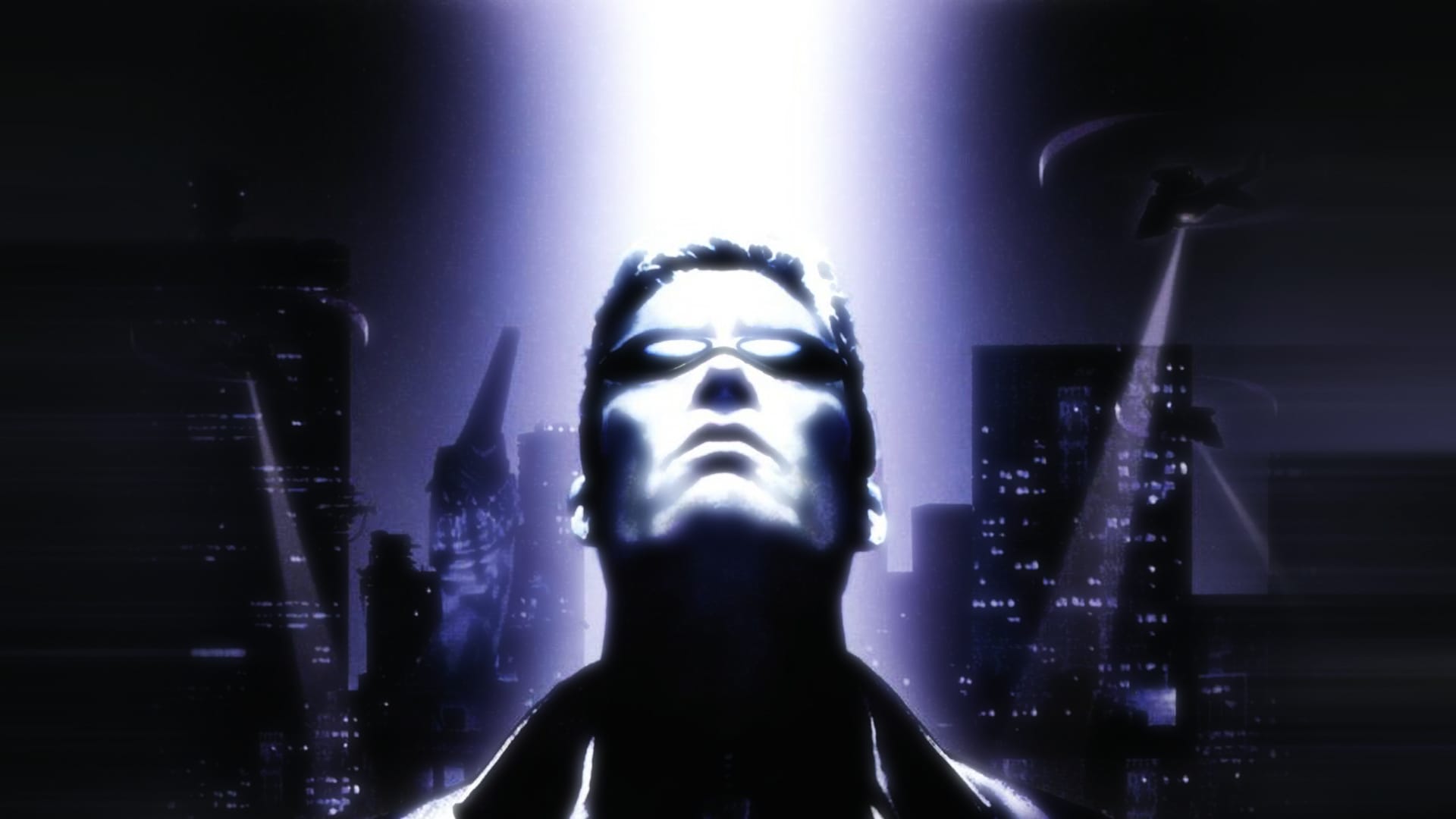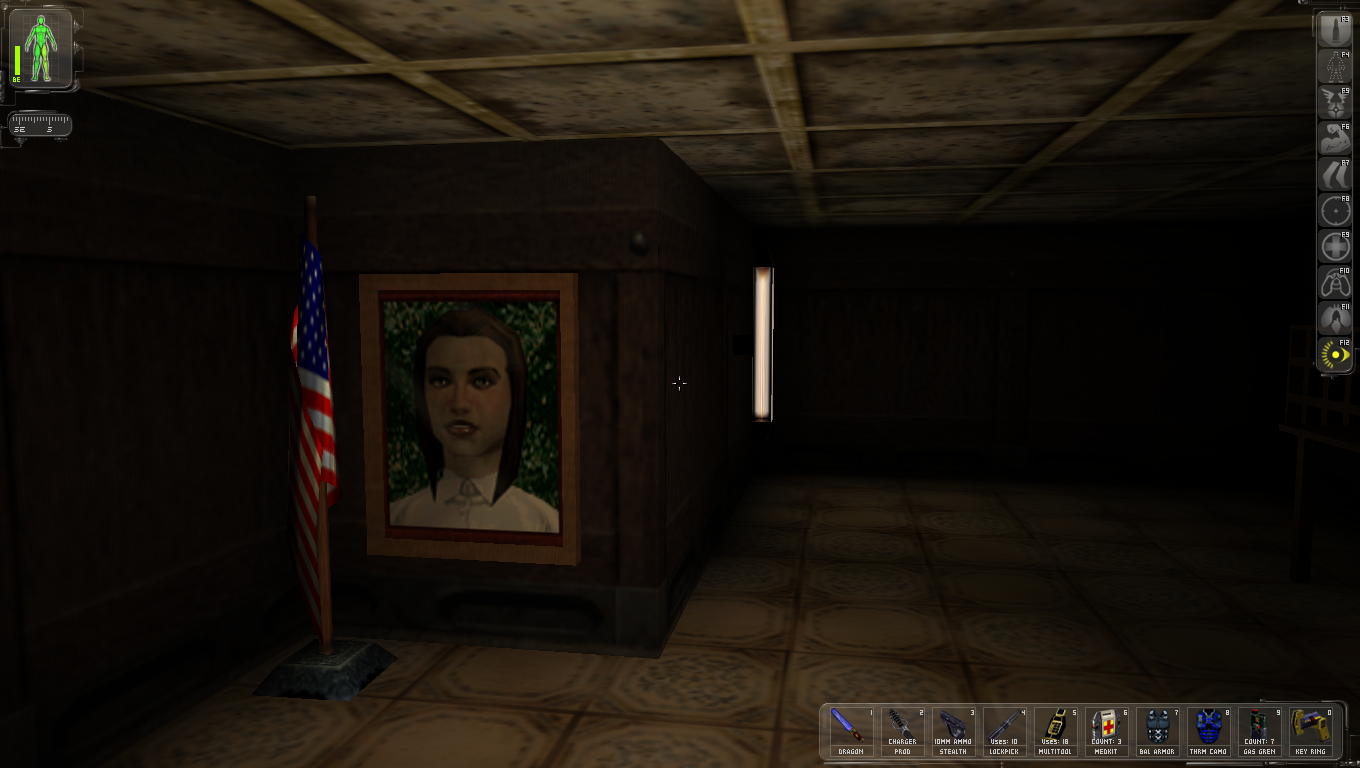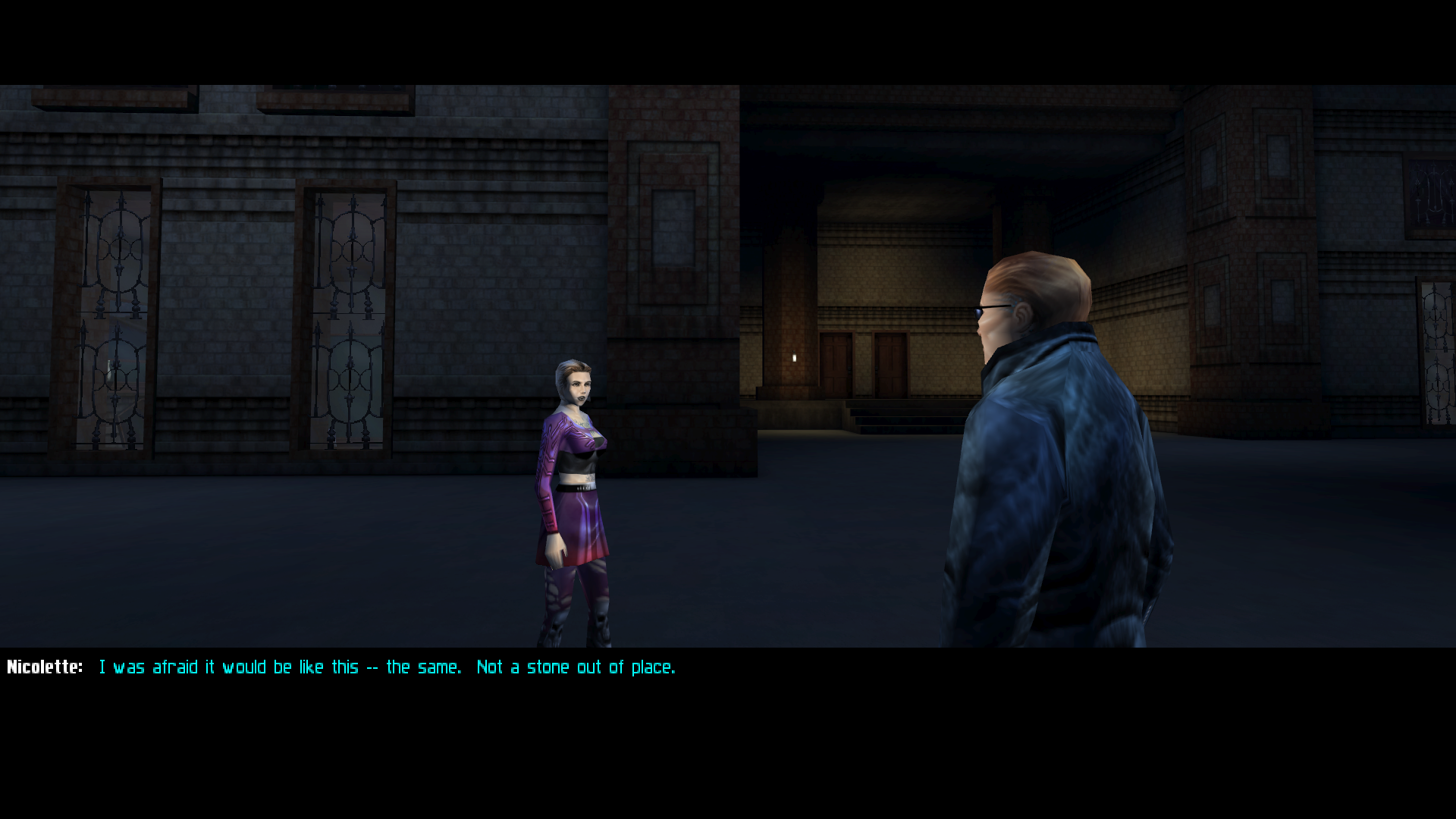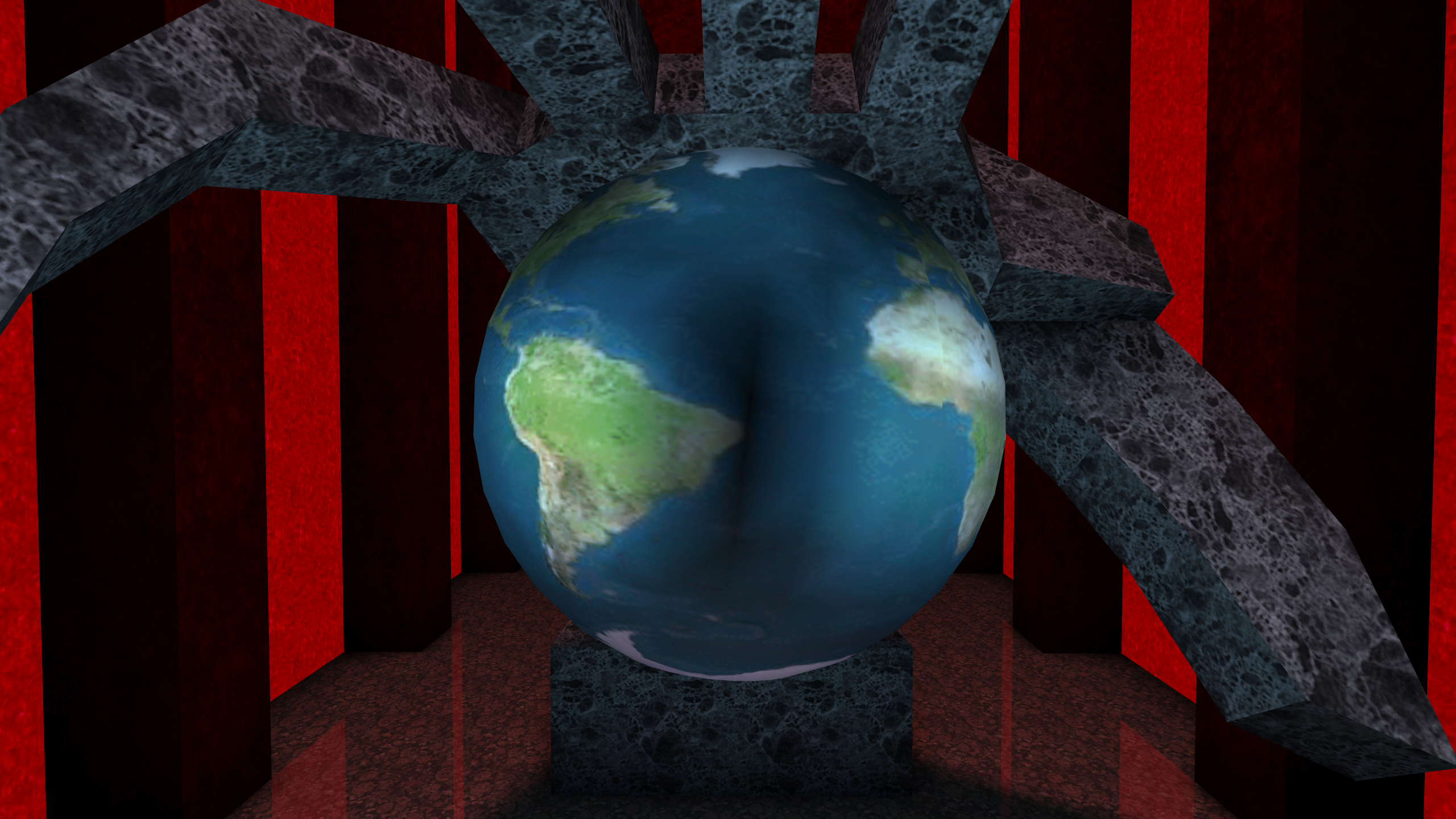Deus Ex: 23 Years Later
The world of Deus Ex reflects our current situation

A devastating plague ravages the world, disproportionately affecting the lower classes. People are dying in droves. Too many to weep for. They call the plague the “Gray Death,” but no one can tell you where it came from. Or if it can be stopped.
Rage at the injustices of a corrupt system bubbles to the surface and violence spills into the streets. It doesn’t last long. Resistance is brutally suppressed by law enforcement agencies that increasingly seem to serve the interests of a corporate class, and not the citizens to whom they swore an oath.
The political world is paralysed; too inept and mired in bureaucracy to successfully restore order to the states they were elected to govern and faith in the institutions they pledged to serve.
Inequality, poverty, and social injustice are endemic the world over but especially pronounced in North America. The republic decays daily, disgraced by an amoral and shameless administration bound to avaricious corporate powers.
It is 2052.
A technological revolution has blurred the lines between the human and transhuman. Nanotechnology is changing, adapting, and modifying the chemistry of the human body. It will herald a new dawn, but as with every step forward, its light is reserved only for a few.
“I don’t care what she’s been doing. Tell her she can come home. No questions, no speeches.”

Hell’s Kitchen, New York. The ‘Ton Hotel - formerly a Hilton, in days gone by. Not better, exactly, just less bad. Now half the neon sign is busted. Lights of a bygone era that are never coming back. But it’s a palace next to what’s inside. The elevator is busted for good, spitting out arcs of electricity, but health inspectors don’t come round anymore. Safety regulations are shredded. A law unto itself.
There are more rodents than guests. It's hard to tell the difference sometimes.
The owner, Gilbert Renton, is a decent man. Proud. He speaks with a guttural croak as if his throat were a car exhaust sputtering out the last gasps of a busted engine. He knows the ‘Ton’s rep, but what can he do? No, really – what can he do?
There’s a framed picture on the wall. A pretty young woman with sunshine hair set against a backdrop of impossible green. Was the world ever so green? It's becoming harder by the day to recall.
“Sandra,” Renton wheezes. His daughter. She was meant to help with the hotel’s upkeep, but the filth is too ingrained now. Scrub away the dirt and there won’t even be a ‘Ton. He just wants to know she’s safe, as safe as she can be in this rotten old world.
Where is she now? Far from the green in the cold grey of New York’s desperate urban jungle. She took to prostitution, fell in with a bad crowd. Johnny. JoJo. Punks, but dangerous punks. Now she wants to leave. Where?
Anywhere. Anywhere but here. There’s a home for her at the ‘Ton, but she hates that temple of squalor. The ‘Ton’s roof, its walls – that’s no home, it’s a prison. Homelessness, then. Maybe that wouldn’t be so bad, but not here. She’s seen enough of this city. Swam its poisoned arteries and choked on its desperate air for too long. Sandra won't let herself join the under-dwellers in a sad march to an inevitable early death mourned by no one at all.
Across the street, there’s a free clinic. The so-called front-line. It’s starved of cash and frequently raided for supplies. Half the staff are too afraid to come to work. Appalling governmental failures have left them without support. They’ve even had to throw open their doors to shelter vagrants, because the destitute are targets now, see. Targets of the arbitrary ire of the police, or whoever the heavies with guns are. No one knows for sure. All anyone knows is that it can’t go on like this much longer.
The entire system is buckling.
Sandra Renton is looking away from New York, to beyond the horizon. Who will tell her there’s nothing there?
“Only in novels do buildings collapse when their spirit is lost.”

A deserted château, Paris. Château DuClare by name. Grand, opulent, stately. Clue’s in the name, right? Château. It’s a far cry from Hell's Kitchen, but its walls weep a different sort of melancholy, speaking of another pain.
The château was once the home of a woman called Elizabeth DuClare. That DuClare possessed great wealth was no secret, but what she did with it was. Ostensibly a liberal centrist, at heart DuClare stood for a conservative regime that exercised its power from the shadows. She believed in a world with ancient, centralised power systems, where class and hierarchy were tacitly maintained. All in the name of a balanced civilization.
The world as it has been defined for centuries.
It was a world taken out from under Elizabeth by scheming acolytes of that same power system. Men who wished to seize the shadows, to hide until they were ready. Ready to emerge not as men, but as something more. More, even, than human. Their paramilitary troops now enforce a strict martial law in Paris, enacted after a series of terrorist incidents by a group called ‘Silhouette’.
Terrorists, or freedom fighters? That depends on who you ask. But if you do, do so in the dark, and in hushed voices. Even the ATMs have ears.
The French president appears on screens across the country, trying to calm a frightened nation. He’s sweating. A bartender at a nightclub says it’s because there’s a gun to his head. You’d ask him to elaborate, but he’s already turned away, afraid to say more. Afraid of what he’s already said.
When did this coup d'état take place? How did a nation surrender its sovereignty to...what, exactly? What form do these usurpers take? Shadows within shadows.
There’s a young woman in the club. Her name is Nicolette. She spends her nights here, drinking, dancing, prolonging the present moment to avoid the future. She is the daughter of Elizabeth DuClare. She can afford such luxuries.
Not that mother and daughter cared for one another. Nicolette resented her mother’s secrets, and the more Nicolette turned from her birthright, the more she embraced the kind of radical politics her mother had scorned all her life.
"Crazy... I lost my virginity out here.”
But now Elizabeth is dead and Nicolette is the heir to the DuClare fortune and the sole owner of the lonely château. Standing before it again, after so long, she shivers. She is not sure what she will find inside. A legacy of a lost world, probably. A world that callously resisted equality, and so inevitably led to this one. Wealth, power, influence – all handed to Nicolette by virtue of birth.
All things Sandra Renton could never and will never know. Nicolette doesn’t know Sandra Renton personally, but she knows the Sandra Rentons of the world, and her heart bleeds for them. It’s why she’s drawn to the revolutionary politics of Silhouette and the political philosophers who give it shape and voice. The ancien régime her mother helped curate must not be allowed to rise again when – if – the present tyranny is overthrown.
She knows this, at least as well as someone born and raised in a rural château can know it.
Which is just another way of saying she doesn’t know it at all.
Today’s revolutionaries are tomorrow’s tyrants.

There’s a dark and sinister conspiracy that unites all of these stories and anecdotes, but that’s just a framing device to tell of institutions, government or otherwise, that have failed to fulfill their basic pledges to the people they were meant to serve.
And the devastating consequences that ensued.
These depths exist in the margins. In the snippets of conversation at bars and clinics; in the dilapidated apartments and corporate offices lit in peppy blues; in the frantic emails of beleaguered doctors and frustrated officials; in the Sandras and Nicolettes, who don’t exactly carry the weight of what’s being told, but who nonetheless provide it with essential context and meaning.
As a hypothetical future, it was, and remains, remarkably prescient. And in its depiction of widespread and crippling inequality, its echoes of our present moment are more than a little chilling.
